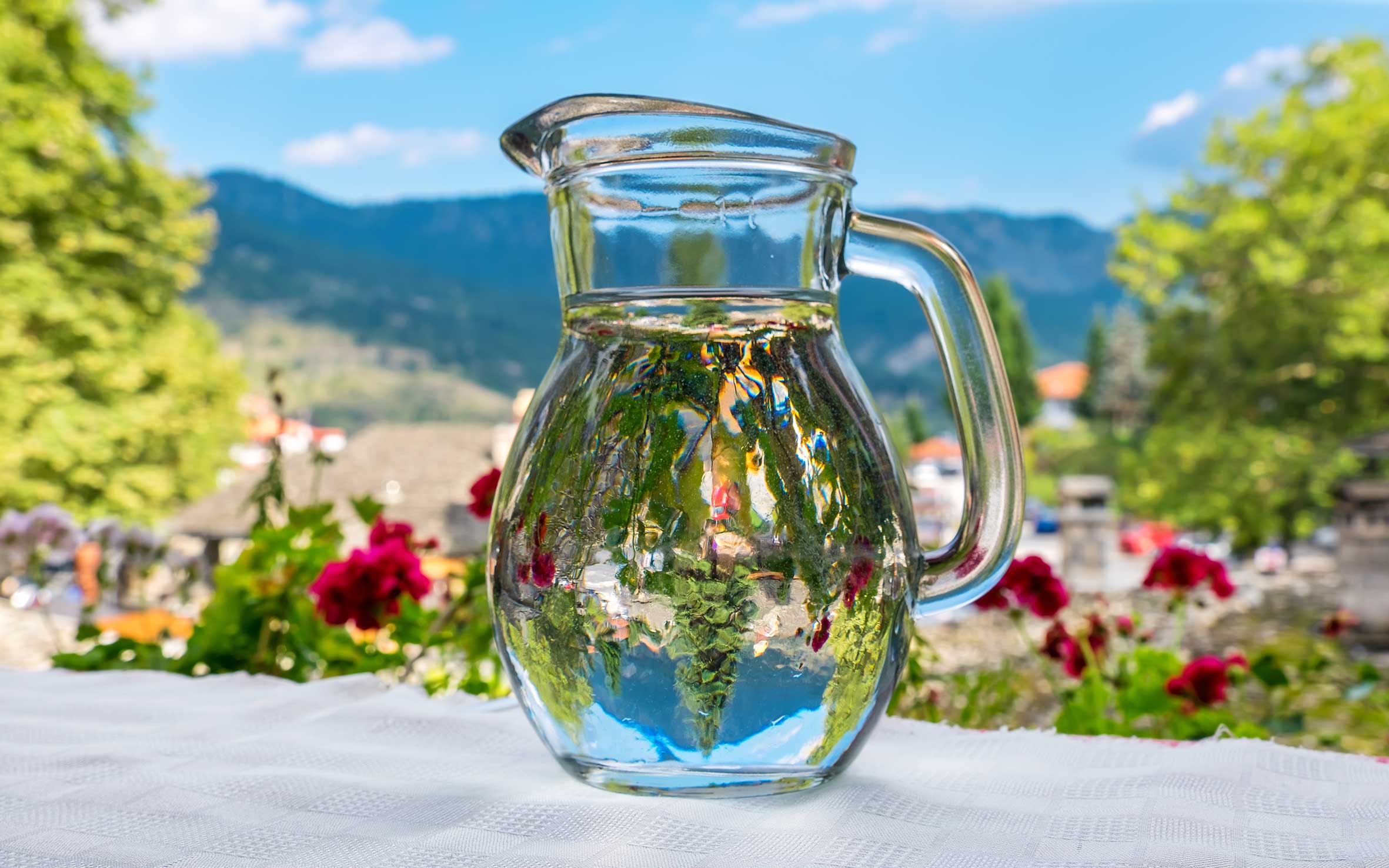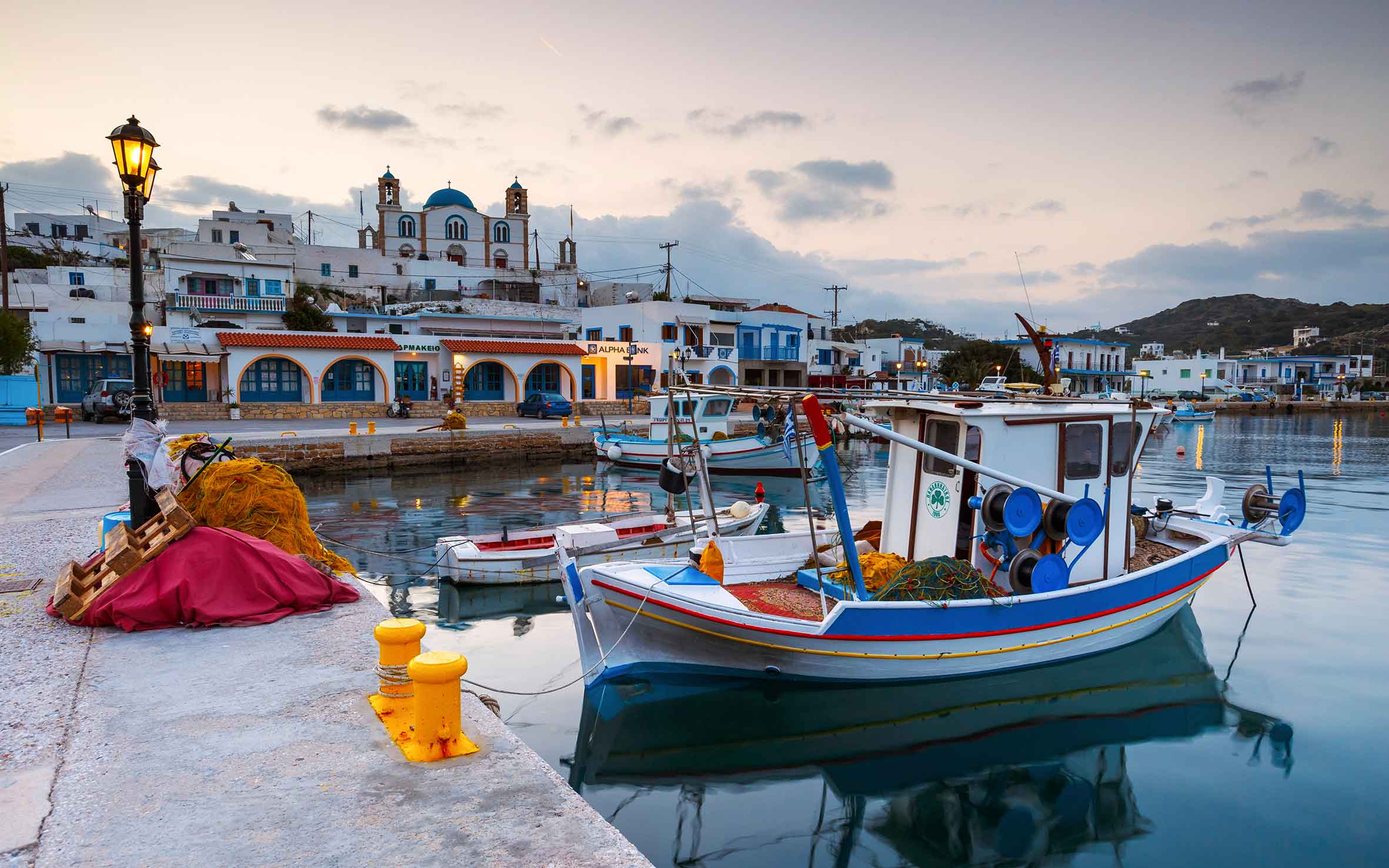The Secret Greek Paradise Ranks Among the World’s…
In a recent feature celebrating the…

© Shutterstock
The Greek islands are looking to minimize their environmental footprint. Several islands now run partially or completely on renewable energy and are working with international automobile companies to replace their vehicles with electric cars, and several have banned the use of plastic bags. One thing that is difficult to get rid of, however, are plastic water bottles. Why? Since the 70s, a flood of tourists is causing a drinkable water draught.
The issue of the necessary use of plastic water bottles on the Aegean islands is discussed in the last episode of The Greek Current, a podcast produced by the Hellenic American Leadership Council and newspaper Kathimerini. Thanos Davelis invites journalists Peter Schwartzstein and Alexander Clapp, authors of a recent article in Bloomberg titled “Greece’s Popular Islands Are Crowded – With Plastic,” to discuss the bottles’ environmental impact, and what can be done.
Bottled water consumption in Greece is among Europe’s highest, with most of them being used on the islands. The water supply on the Cycladic islands, in particular, have historically never been rich, but adding “the pretty titanic number of people that have been flooding in, you end up with a mismatch of supply and demand,” Schwartzstein explains, referring to their large number of tourists.

Lipsi island has managed to cut their plastic bottle usage in half by installing desalination kiosks.
© Shutterstock
The Mediterranean is still one of the most micro-plastic infested bodies of water on the planet. Other Mediterranean countries will have to pitch in as well, Schwartzstein points out, but there’s lots of potential to make a difference in Greece. Some of the islands are already making an effort to provide clean water from the tap. A pipeline running from the mainland will soon provide the island of Aegina with consumable water, for example, and islands such as Lipsi, in the Dodecanese, have managed to cut their plastic bottle usage in half by installing desalination kiosks along the port, and making the water free for half of the month – an example which is replicable, and, according to Clapp, is already inspiring other islands.
“The thing about the Greek islands is that they’re blessed with extraordinary green resources,” says Clapp. “You could imagine a situation, for instance, where islands are running on solar panels and by wind energy, and that they’re using this to desalinate water. And we can foresee it as an area in which these islands once again become self-sufficient in their water needs, as much as they were throughout their thousands of years of history…”
You can listen to the podcast here.
In a recent feature celebrating the…
This hidden gem of the Aegean…